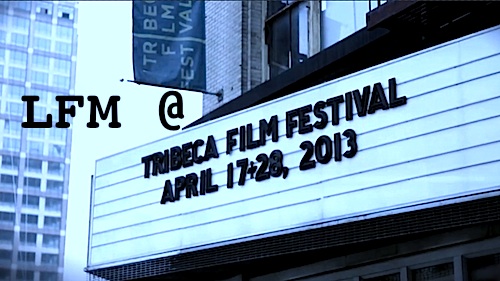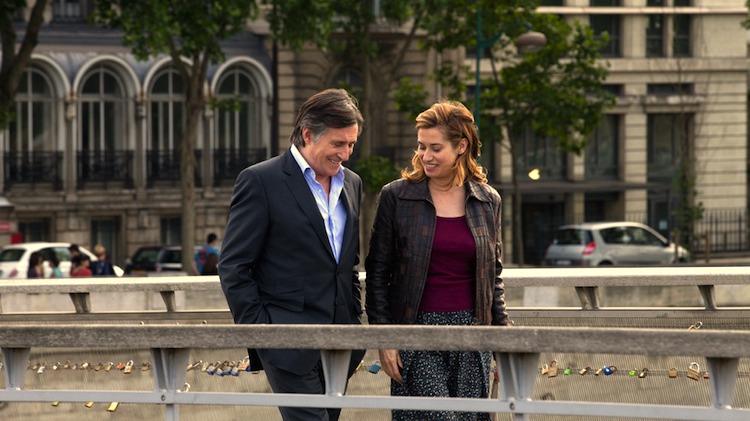By Joe Bendel. Given the rainy climate and the subject matter, performing a regional production of Ibsen in Calais must be depressing. It is a gig, but Alix has yet to be paid for it. Her career is not going so well and her personal life is rather rocky too, so when she meets a handsome stranger she cannot help wondering “what if” in Jérôme Bonnel’s Just a Sigh (trailer here), which screens during this year’s Tribeca Film Festival.
Alix and a quiet, sensitive looking man are both taking the train from Calais to Paris. She hopes to re-establish some order in her finances and have a long talk with her partner. Maddeningly, he just does not seem to be around. Yet, as fate would have it, she again crosses paths with the man with the sad eyes. Douglas has come from Britain for the funeral of a Parisian college friend. Despite his very real grief, he is undeniably attracted to Alix. Things do indeed run their course, but both are reluctant to let go of the moment.
 Granted, Sigh revisits the familiar terrain of Brief Encounter and other short but sweet cinematic trysts. However, Bonnel’s mostly French language film is unusually mature, sophisticated, and frankly kind of hot, in a middle aged way. The on-screen chemistry between co-leads Emmanuelle Devos and Gabriel Byrne is quite powerful. Devos shows considerable flexibility, segueing from Alix’s scatter-brained rushing about to her massively smoldering scenes with Byrne. For his part, the Irish actor radiates tragic dignity as her temporary lover.
Granted, Sigh revisits the familiar terrain of Brief Encounter and other short but sweet cinematic trysts. However, Bonnel’s mostly French language film is unusually mature, sophisticated, and frankly kind of hot, in a middle aged way. The on-screen chemistry between co-leads Emmanuelle Devos and Gabriel Byrne is quite powerful. Devos shows considerable flexibility, segueing from Alix’s scatter-brained rushing about to her massively smoldering scenes with Byrne. For his part, the Irish actor radiates tragic dignity as her temporary lover.
Sigh is a deceptively simple story, implying years of frustration and regret with a glance. Gorgeously lensed by Pascal Lagriffoul, it is a seamlessly elegant package. Paris never looked better on film and every love scene should be so tastefully staged as those found here. Bonnel only errs in giving too much screen time to Alix’s condescending family, because they break his intoxicating spell.
Deeply romantic but never sentimental, Just a Sigh is exactly the sort of French film French cinema connoisseurs love to love, harkening back to the cross-over appeal of A Man and a Woman. Featuring Byrne, arguably a bigger star today as result of his TV work on In Treatment and Vikings, it should be a no-brainer acquisition candidate. Enthusiastically recommended, Just a Sigh screens again this Sunday (4/21), Thursday (4/25), and next Sunday (4/28) during the 2013 Tribeca Film Festival.
LFM GRADE: A
Posted on April 20th, 2013 at 2:45pm.

